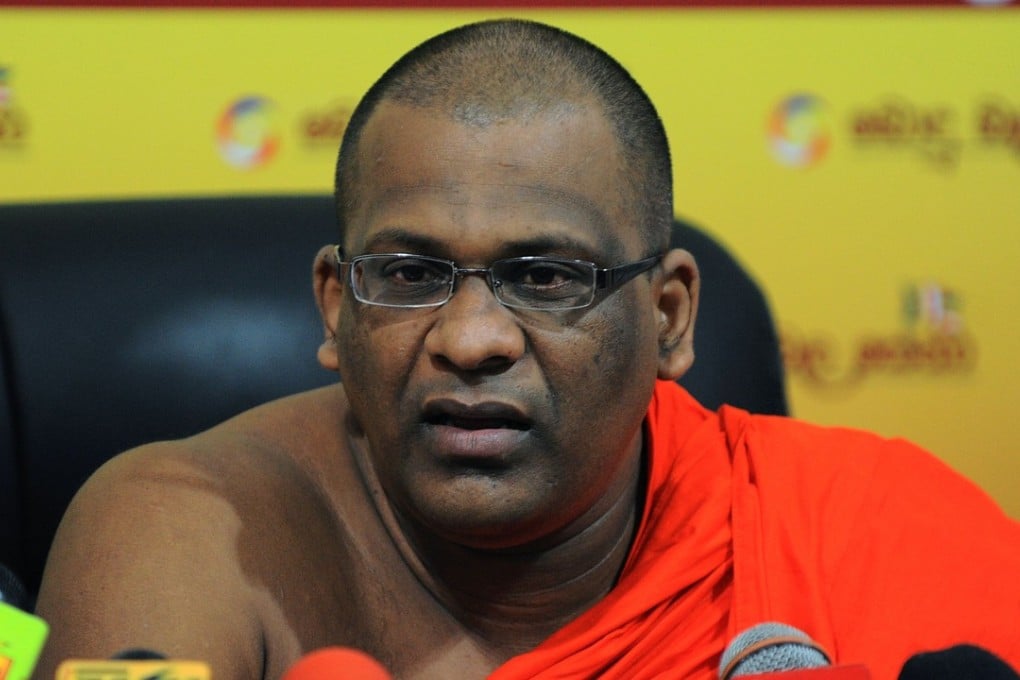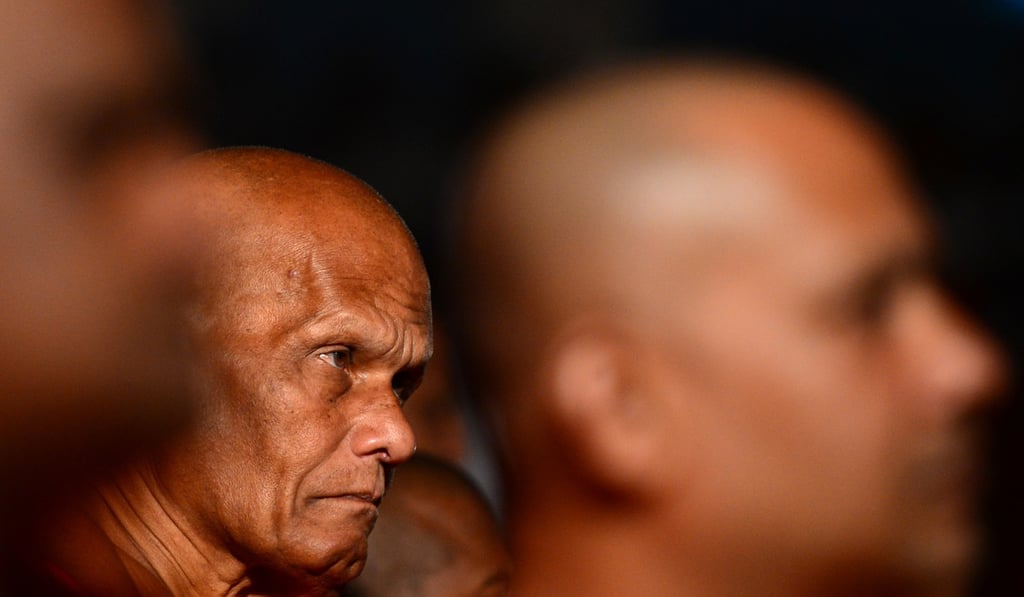Buddhist extremism: is monk Gnanasara’s jailing a sign of Sri Lankan enlightenment?
The surprise sentencing of the Bodu Bala Sena leader, which comes in wake of anti-Muslim riots, brings hope of a new approach in a country that seldom brings its Buddhist extremists to justice

Just before being hauled off to jail, the seemingly untouchable firebrand monk – clad in a brilliant saffron robe – wanted to get in the last word.
“I have done my duty towards the country,” Galagoda Aththe Gnanasara told reporters early this month as he boarded a prison transport vehicle shortly after his sentencing in a Colombo courtroom. “Why should I regret?”
While the controversial monk expressed no remorse, his many critics were cautiously hopeful that his internment showed Buddhist extremists were no longer untouchable in a country where hatred is easily sparked in the tinder dry jungle that is Sri Lanka’s combustible religious make-up.
China’s Buddhist diplomacy in Sri Lanka: the motorway to enlightenment
The monk Gnanasara, head of the so-called Buddhist Power Force, was sentenced to six-months in jail for threatening the wife of a missing journalist, a surprise decision in a country where Buddhist extremists are not often brought to justice.
“That government prosecutors supported a custodial sentence is also positive and noteworthy, as Sri Lankan governments have been reluctant to prosecute militant monks, even when there has been strong evidence of their involvement in crimes,” said Alan Keenan, a Sri Lankan specialist at the International Crisis Group in London.

In this case the monk was not convicted of a crime involving inciting religious violence, an accusation that has dogged him and his organisation, known locally as the Bodu Bala Sena, or BBS, for years. The monk was instead brought down by the acrimonious hangover from the civil war that ended in 2009.
Some believe the conviction of the monk reaffirms the independence of the judiciary, which comes just months after Sinhalese mobs, urged on by Buddhist monks, attacked mosques and shops owned by Muslims in the central city of Kandy. An island-wide state of emergency was imposed, and restrictions were slapped on Facebook and other social media to cap the violence. Monk Gnanasara was accused of whipping up anti-Muslim sentiment when he attended the funeral of a Sinhalese truck driver who died after being attacked by a group of Muslim men in a road rage incident.